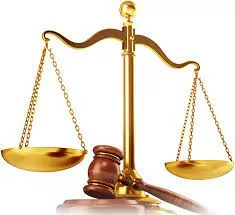In a significant development, a New Jersey court in the United States has ruled in favor of returning approximately $8.9 million to Nigeria.
The funds, suspected to have been misappropriated by Nigerian government officials in 2014, were traced to a Jersey bank account and linked to illicit activities during the Boko Haram insurgency.
The court’s decision follows a forfeiture notice served by Jersey’s Attorney General to the Royal Court in November.
The investigation revealed that the transfer of money was disguised as government-sanctioned contracts for arms purchases between 2009 and 2015.
Notably, a substantial portion of the funds meant for legitimate arms transactions was allegedly redirected through international bank accounts associated with shell companies.
Mark Temple KC, His Majesty’s Attorney General, highlighted the effectiveness of the 2018 Forfeiture Law in recovering proceeds of corruption and restoring them to victims. He stated, “This case again demonstrates the effectiveness of the 2018 Forfeiture Law in recovering the proceeds of corruption and restoring that money to victims of crime.”
Negotiations for the return of these assets will now take place between Jersey and the Federal Republic of Nigeria. This development aligns with global efforts to combat corruption and ensure that public funds are utilized for the benefit of the people.
In recent times, the international community has intensified investigations into looted funds within banks, aiming to repatriate such assets. Notable instances include the recovery of funds belonging to former Head of State, Gen. Sani Abacha, estimated at $3.65 billion over the past 24 years. The majority of these recovered funds were traced to foreign banks in Europe and the United States, with Switzerland being a significant source.
The latest repatriation to Nigeria before this case involved $150 million returned from France in November 2023. These efforts signify a collective commitment to combating corruption on a global scale and returning stolen assets to their rightful owners.





